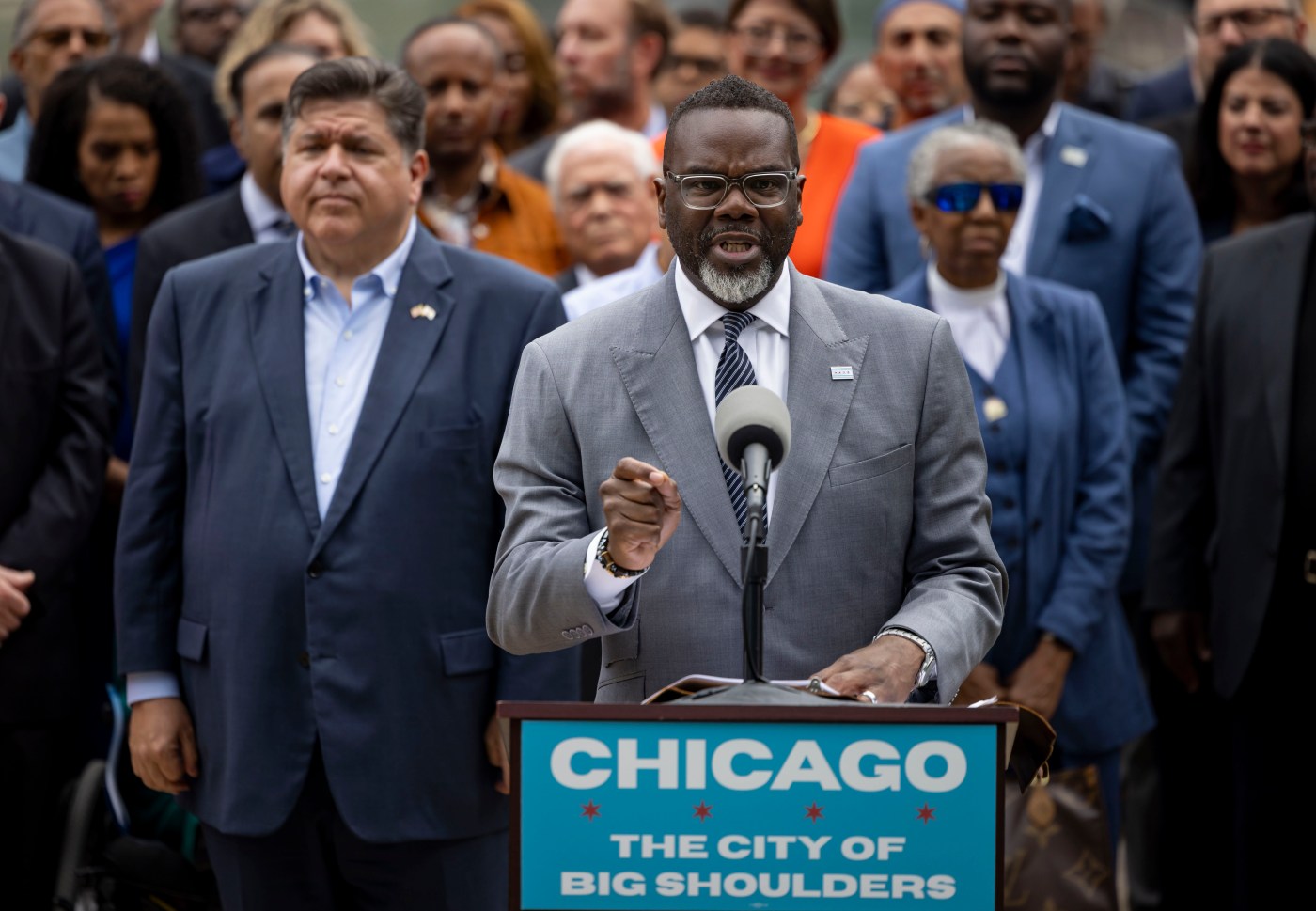UPDATE: Chicago’s crime rates have significantly decreased, yet tensions escalate as President Donald Trump threatens to deploy federal troops in response to violence. As of September 8, 2025, local officials are highlighting a 30% reduction in crime, with over 50 people shot across the city over the weekend. This urgent situation places Mayor Brandon Johnson in a politically charged battle against Trump’s narrative.
In a stark contrast to Trump’s claims of Chicago as a “hellhole,” recent data shows that shootings have been nearly cut in half compared to last year. The city’s violence reduction dashboard indicates a 30% drop in carjackings, robberies, and murders, raising questions about the effectiveness of Trump’s proposed military intervention.
Local leaders, including Governor JB Pritzker, have rallied against the idea of federal troops, asserting that Chicago’s own police and community initiatives are making strides. “We can move fast and stop this madness,” Trump proclaimed on Truth Social, pushing for federal intervention. However, Johnson contends that the city’s progress is proof of effective local leadership, asserting, “Think about what people said would happen if you elected a progressive.”
Despite the promising statistics, many Chicago residents still feel unsafe in their neighborhoods. Critics argue that Johnson is merely benefiting from a broader national trend of declining crime rates, rather than his policies. The mayor’s administration cites initiatives like the Chicago CRED program, which aims to provide support for at-risk individuals, as key components in addressing the root causes of violence.
Recent conversations have revealed that the homicide rate could fall below 500 this year, a target that would be a major achievement for Johnson’s administration. However, community leaders express skepticism. Alderman Matthew O’Shea voiced concerns, stating, “There’s crime statistics, and then there’s the perception of crime.” He insists that residents do not feel safe despite reports of declining numbers.
Community members like Chrischauna Smith, a participant in the Chicago CRED program, emphasize the importance of understanding the human impact of violence. Having experienced gun violence firsthand, she advocates for policies that provide alternatives to crime for young people. “If I didn’t have this program, I’ll tell you the truth, I’ll probably be in jail right now or I’ll probably be dead,” Smith shared.
As the political battle intensifies, Johnson’s administration faces pressure to continue investing in non-policing safety efforts while balancing the need to address immediate public safety concerns. The upcoming budget discussions are critical, with activists calling for the reallocation of funds from vacant police positions to community programs.
This urgent situation not only highlights the ongoing struggles in Chicago but also reflects a broader narrative about the complexities of urban violence and the fight for effective solutions. Observers are closely watching how this conflict between local leadership and federal intervention unfolds in the coming weeks.
